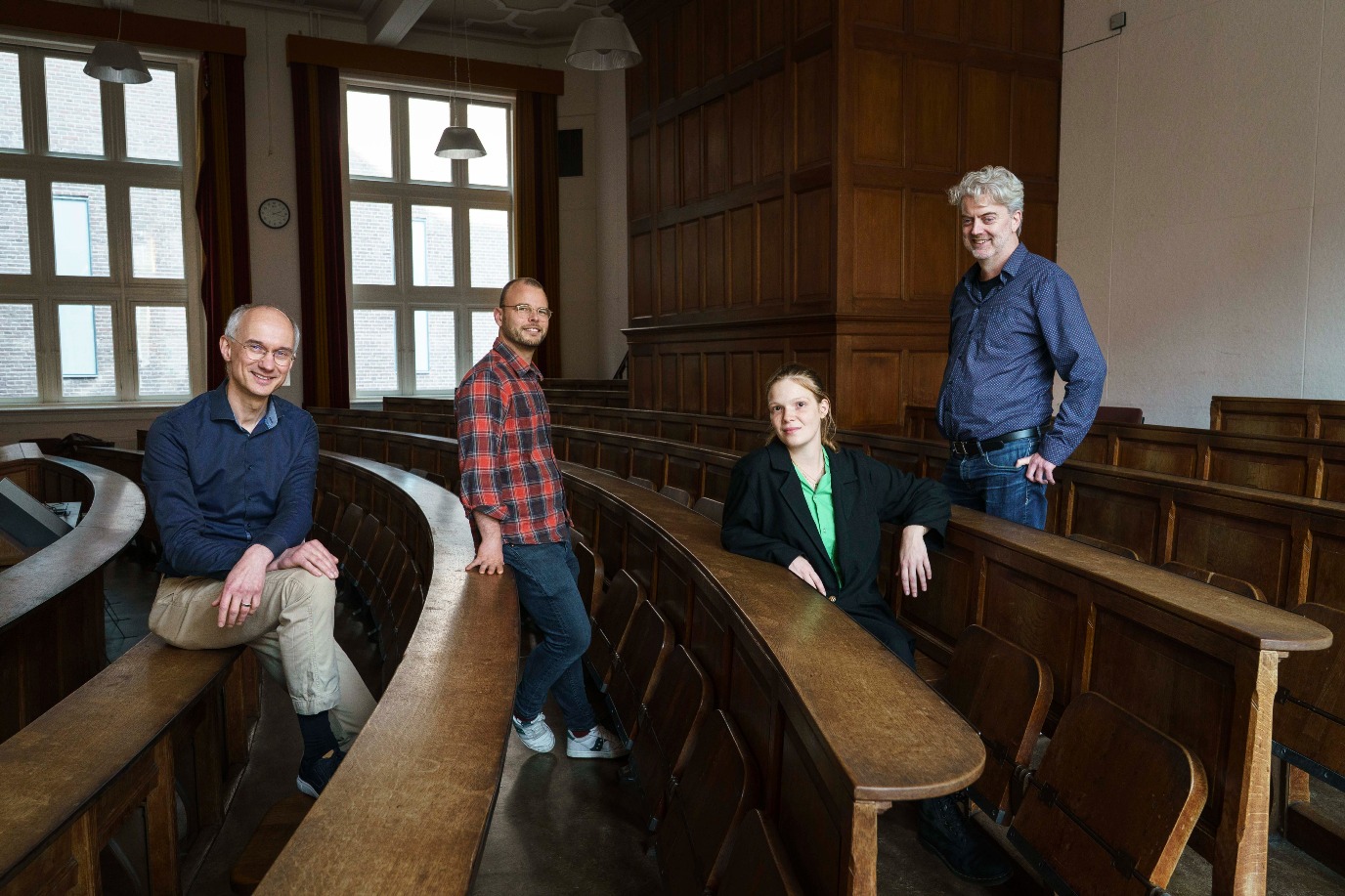The search for responsibility in the financial world
Financial institutions and multinationals manage enormous cash flows. This means they play a central role not only in the global economy, but also in major political and social developments, such as the energy transition, international sanctions and geopolitical conflicts. Sometimes their influence is downright problematic. Banks can, consciously, facilitate cash flows to authoritarian regimes or companies that contribute to pollution. In such cases, the ethical boundary is clear. But there are also situations in which responsibility is less clear-cut. Can you hold a financial institution morally responsible for something it is not aware of?
Text: Djoeke Bakker, Ubbo Emmius Fund / Photo: Reyer Boxem
The reality is complex. Money moves through networks of customers, subsidiaries and intermediaries. Many institutions do not know exactly where their investments end up, and sometimes they would rather not know. What does that mean for their moral responsibility? And what is the link between knowledge and responsibility?
Research into moral knowledge in the financial sector
The research project Dare to Know? Epistemic Responsibilities of Financial Institutions in the Context of Sanction Compliance investigates how banks and other financial institutions can be held responsible for their investments. Although financial flows are often opaque and complex, this does not exempt institutions from moral judgement, says Job de Grefte, lecturer in philosophical skills and principal applicant of the project. What makes this research special is the collaboration between philosophers and economists. It is precisely this combination that makes it possible to understand both the rules and the ethical considerations that banks have to deal with on a daily basis.

What can we expect from banks?
‘Banks play a crucial role in societal challenges, such as the energy transition and sanctions against countries like Russia,’ says De Grefte. ‘But in order to fulfil that role properly, they need to know enough about their customers and investments.’ Together with Boudewijn de Bruin, professor of financial ethics, Frank Hindriks, professor of ethics and social philosophy, and PhD candidate Maddalena Fazzo Cusan, De Grefte is investigating the minimum knowledge financial institutions need to be able to act responsibly. ‘We are not only looking at what the law prescribes,’ he explains, ‘but also at what we as a society can reasonably expect from banks. Where is the line between responsibility and ignorance?’
Knowledge and uncertainty
According to Hindriks, uncertainty is inextricably linked to the financial world. ‘Some banks want to operate responsibly, but are confronted with a maze of rules and complex ownership structures. Sometimes they simply don't know where their money ends up.’ A current example is the sanctions against Russia following its invasion of Ukraine. ‘Many banks had to freeze the assets of Russian oligarchs,’ says Hindriks. ‘Some did so quickly and effectively, while others barely knew who their customers were.’ These differences show how important knowledge is for ethical conduct.
A new model for responsibility
What sets this project apart is the way it brings together philosophy and economics. ‘These issues are often viewed from a legal or economic perspective,’ says Fazzo Cusan. ‘We focus on the moral responsibility behind financial choices.’ The team is developing a model that banks can use to assess whether they have enough information to act ethically. ‘We are not prescribing new rules,’ she explains, ‘but encouraging institutions to take a critical look at their own knowledge and responsibility.’ The model can also be applied to other major economic bodies that have a significant influence on society.
Towards a fairer financial system
Interdisciplinary research such as this is rare and difficult to finance. Yet it is crucial, De Bruin emphasises. ‘It's not just about rules, but about the question: how do we create a fairer financial world? This research helps banks make better choices, and that has consequences for society as a whole.’ De Grefte agrees. ‘We don't offer simple solutions, but challenge the financial sector to take responsibility. That is perhaps the most important step towards a more equitable economic system.’ By raising the question of responsibility, this research shows that the financial world also requires a human component.
This project is funded by the Ubbo Emmius Fund and is part of the Rudolf Agricola School for Sustainable Development.
More news
-
08 December 2025
Citizen participation essential for a sustainable energy future
-
02 December 2025
Trust in science requires integrity in communication
-
14 October 2025
The cruelty of humour in politics
